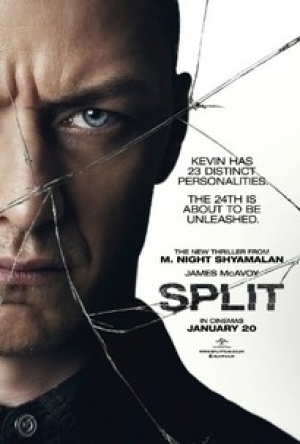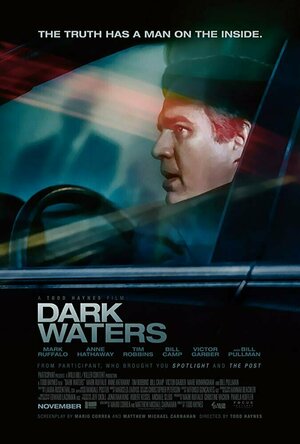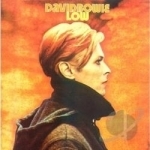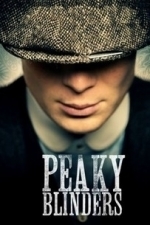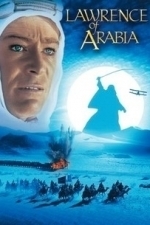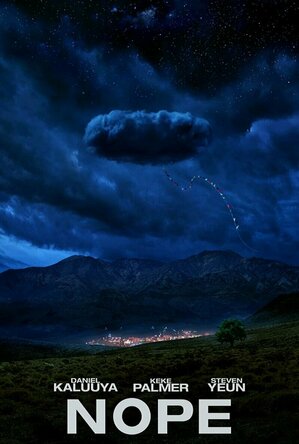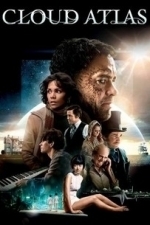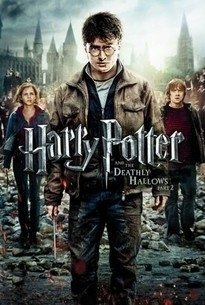Search
Search results
Elizabeth (1521 KP) rated Split (2016) in Movies
Jul 11, 2019
Contains spoilers, click to show
I didn't realize this was an M. Night Shyamalan film when I watched it. In true M. Night Shyamalan fashion, you get a surprise twist at the end and find out that Kevin (James McAvoy) exists in the same world of hero and villain, David Dunn (Bruce Willis) and Mr. Glass ( Samuel L. Jackson) from Unbreakable.
James McAvoy had to play several different characters in this movie, as Kevin has 23 different personalities, some not so nice, and others, pure evil. A few of these personalities kidnap and hold 3 girls hostage and you watch as they learn the gravity of their situation and try to plan their escape. One of their captor's personalities is a kind and simple soul, Hedwig, that the girls try to exploit to help them escape.
All the while, Kevin is seeing a therapist to try to keep his darker personalities in check. But a new, more terrifying 24th personality begins to emerge and take over. It is this 24th personality known as the Beast that catches the attention of Dunn and Mr. Glass, along with the rest of the world. The Beast is superhuman, able to scale walls and seemingly invulnerable.
Of the 24 personalities, only a handful are fully developed characters portrayed in the movie. It could not have been an easy role, but McAvoy does it so well, that you believe the different personalities. I have long been a fan of McAvoy's and he does not disappoint in this film.
James McAvoy had to play several different characters in this movie, as Kevin has 23 different personalities, some not so nice, and others, pure evil. A few of these personalities kidnap and hold 3 girls hostage and you watch as they learn the gravity of their situation and try to plan their escape. One of their captor's personalities is a kind and simple soul, Hedwig, that the girls try to exploit to help them escape.
All the while, Kevin is seeing a therapist to try to keep his darker personalities in check. But a new, more terrifying 24th personality begins to emerge and take over. It is this 24th personality known as the Beast that catches the attention of Dunn and Mr. Glass, along with the rest of the world. The Beast is superhuman, able to scale walls and seemingly invulnerable.
Of the 24 personalities, only a handful are fully developed characters portrayed in the movie. It could not have been an easy role, but McAvoy does it so well, that you believe the different personalities. I have long been a fan of McAvoy's and he does not disappoint in this film.
Kenneth Lonergan recommended Dark Waters (2019) in Movies (curated)
Woody Woodmansey recommended track Always Crashing in the Same Car by David Bowie in Low by David Bowie in Music (curated)
Rat (1 KP) rated Peaky Blinders - Season 1 in TV
Mar 28, 2018
Forget everything you think you know about period drama
It would be easy to dismiss Peaky Blinders as just a British drama. It would be easy to dismiss it as just a period piece. It would be easy to claim that it was just a British Boardwalk Empire. You'd be so wrong to do so.
Every part of Peaky Blinders is perfection. From the superb acting of its regular cast (Cillian Murphy on a tv show? Sign me up!) to a roster of featured guests (Sam Neill? Tom Hardy? Adrien Brody? Who did the casting director sell their soul to, anyway?) to the use of colour and an outlaw music soundtrack that shouldn't work, but does (Nick Cave? PJ Harvey? Tom Waits? David Bowie? On a period drama? What is this? Freaking genius, that's what.)
Shortly after the end of the first World War, a family of Irish gypsy (their word, not mine) - blooded Birmingham bookmakers tries to recover from the horrors of that war and build up their business. Second oldest, Tommy Shelby (played expertly by Cillian Murphy who manages to play a gangster who is both ruthless and fragile with the ability to break your heart with a single look), came back from the war broken by his experiences, but determined to rise far beyond the limitations of his Small Heath upbringing. Not only does he have the expected clashes with those who want to keep him from growing his business (both criminal rivals and the police) but he has a family to run (with all the interpersonal conflicts that entails). All of this is set against a backdrop of political turmoil from the IRA and the rise of communist sympathy in the UK.
You shouldn't like Tommy Shelby, but he is written and acted so well that you won't be able to not like him. The same can be said for older brother, Arthur, younger siblings John, Ada, and Finn. If you don't love Aunt Polly, then you must have a problem with strong female characters.
Steven Knight has taken a world told to him through family legend and turned it into a world that you will be eager to inhabit an hour (or, if you're like everyone I know, a season) at a time. He writes a period drama that doesn't feel dated. The characters and their struggles are as relevant today as they were nearly a hundred years ago.
Take a chance on the show with the weird name and discover why there are very few casual Peaky Blinders fans. There's a reason why the late, great David Bowie was a huge fan and made sure that they would have a song from his last album before he died. There's a reason the show's dated fashion and hairstyles are making a comeback, why Peaky Blinders pubs and pub nights are popping up all over. It's that good. Check it out for yourself.
Every part of Peaky Blinders is perfection. From the superb acting of its regular cast (Cillian Murphy on a tv show? Sign me up!) to a roster of featured guests (Sam Neill? Tom Hardy? Adrien Brody? Who did the casting director sell their soul to, anyway?) to the use of colour and an outlaw music soundtrack that shouldn't work, but does (Nick Cave? PJ Harvey? Tom Waits? David Bowie? On a period drama? What is this? Freaking genius, that's what.)
Shortly after the end of the first World War, a family of Irish gypsy (their word, not mine) - blooded Birmingham bookmakers tries to recover from the horrors of that war and build up their business. Second oldest, Tommy Shelby (played expertly by Cillian Murphy who manages to play a gangster who is both ruthless and fragile with the ability to break your heart with a single look), came back from the war broken by his experiences, but determined to rise far beyond the limitations of his Small Heath upbringing. Not only does he have the expected clashes with those who want to keep him from growing his business (both criminal rivals and the police) but he has a family to run (with all the interpersonal conflicts that entails). All of this is set against a backdrop of political turmoil from the IRA and the rise of communist sympathy in the UK.
You shouldn't like Tommy Shelby, but he is written and acted so well that you won't be able to not like him. The same can be said for older brother, Arthur, younger siblings John, Ada, and Finn. If you don't love Aunt Polly, then you must have a problem with strong female characters.
Steven Knight has taken a world told to him through family legend and turned it into a world that you will be eager to inhabit an hour (or, if you're like everyone I know, a season) at a time. He writes a period drama that doesn't feel dated. The characters and their struggles are as relevant today as they were nearly a hundred years ago.
Take a chance on the show with the weird name and discover why there are very few casual Peaky Blinders fans. There's a reason why the late, great David Bowie was a huge fan and made sure that they would have a song from his last album before he died. There's a reason the show's dated fashion and hairstyles are making a comeback, why Peaky Blinders pubs and pub nights are popping up all over. It's that good. Check it out for yourself.
Antonio Banderas recommended Lawrence of Arabia (1962) in Movies (curated)
Shirley Manson recommended The Lion and the Cobra by Sinead O'Connor in Music (curated)
BankofMarquis (1832 KP) rated Nope (2022) in Movies
Jul 26, 2022
Original...Tense...and Entertaining
Producer/Writer/Director Jordan Peele has managed to accomplish something with his latest horror film - he has managed to make a completely original film both in concept and in execution.
To tell too much about the story of NOPE would be to spoil it - and letting this unique film unfold in front of you is a large part of the journey - but, to sum up…Hollywood Horse Wrangler, Otis Haywood Sr. (the great Keith David, THE THING), his son, Otis Haywood, Jr. - or as he is called in this film OJ (the incomparable Oscar-winner Daniel Kaluuya) and his daughter, Emerald (Keke Palmer of Disney Channel fame, amongst others) encounter some strange phenomena. Their investigation will draw in their neighbor, former child star Ricky “Jupe” Park (Steven Yeun, THE WALKING DEAD), a tech from the local IT Hardware store, Angel Torres (Brandon Perea, THE OA) and a wildlife cinematographer, Antlers Holst, who specializes in getting the “impossible” shot (Michael Wincott, THE CROW).
It’s a wildly entertaining, grip-your-armchair type of film that unfolds on the screen in clever ways (without getting “too” weird) - all with the pragmatic sensibilities of Peele, the former member of the comedy duo KEYE & PEELE. Jordan has grown into a filmmaker that must not be missed and in NOPE he showcases his skill with strong effect, being in complete control of the artistic point of view while delivering a highly entertaining thriller.
Of course, it helps that you have a performer as interesting to watch as Kaluuya - one of the finest performers in film today. He plays the taciturn OJ with complete “taciturn-ness” (if that is a word) and, in his skilled body, this performance works very, very well. He says more with a glance or a shrug than most people can say with a 1,000 words and he draws you into the screen and into his thoughts with tremendous intimacy.
Keke Palmer, by contrast, is the exact opposite. Her Emerald is flamboyant, chatty, up-beat and beset by inner demons made manifest by drugs, alcohol and smoke. It is a movie-saving performance by Palmer as she brings the heart and the energy to the proceedings while Kaluuya is the quiet brains and the soul.
Perea, Yeun, David and (especially) Wincott all add to the tapestry of the events and bring something interesting and worth looking at (and into) during the course of this film.
Peele ratchets the tension throughout this film like an expert and the Special Effects are used in exactly the right way that they needed to be used and showcased throughout the film - filling you with awe when that is called for and having you think to yourself “you’ve got to be kidding me” when that is exactly what the characters are thinking.
A masterful, original concept of a film by Peele - one that is not for everyone - but those that are into this type of thing are going to be in for a unique and original film filled with unique characters and more than one jump along the way.
Letter Grade: A
9 stars (out of 10) and you can take that to the Bank(ofMarquis)
To tell too much about the story of NOPE would be to spoil it - and letting this unique film unfold in front of you is a large part of the journey - but, to sum up…Hollywood Horse Wrangler, Otis Haywood Sr. (the great Keith David, THE THING), his son, Otis Haywood, Jr. - or as he is called in this film OJ (the incomparable Oscar-winner Daniel Kaluuya) and his daughter, Emerald (Keke Palmer of Disney Channel fame, amongst others) encounter some strange phenomena. Their investigation will draw in their neighbor, former child star Ricky “Jupe” Park (Steven Yeun, THE WALKING DEAD), a tech from the local IT Hardware store, Angel Torres (Brandon Perea, THE OA) and a wildlife cinematographer, Antlers Holst, who specializes in getting the “impossible” shot (Michael Wincott, THE CROW).
It’s a wildly entertaining, grip-your-armchair type of film that unfolds on the screen in clever ways (without getting “too” weird) - all with the pragmatic sensibilities of Peele, the former member of the comedy duo KEYE & PEELE. Jordan has grown into a filmmaker that must not be missed and in NOPE he showcases his skill with strong effect, being in complete control of the artistic point of view while delivering a highly entertaining thriller.
Of course, it helps that you have a performer as interesting to watch as Kaluuya - one of the finest performers in film today. He plays the taciturn OJ with complete “taciturn-ness” (if that is a word) and, in his skilled body, this performance works very, very well. He says more with a glance or a shrug than most people can say with a 1,000 words and he draws you into the screen and into his thoughts with tremendous intimacy.
Keke Palmer, by contrast, is the exact opposite. Her Emerald is flamboyant, chatty, up-beat and beset by inner demons made manifest by drugs, alcohol and smoke. It is a movie-saving performance by Palmer as she brings the heart and the energy to the proceedings while Kaluuya is the quiet brains and the soul.
Perea, Yeun, David and (especially) Wincott all add to the tapestry of the events and bring something interesting and worth looking at (and into) during the course of this film.
Peele ratchets the tension throughout this film like an expert and the Special Effects are used in exactly the right way that they needed to be used and showcased throughout the film - filling you with awe when that is called for and having you think to yourself “you’ve got to be kidding me” when that is exactly what the characters are thinking.
A masterful, original concept of a film by Peele - one that is not for everyone - but those that are into this type of thing are going to be in for a unique and original film filled with unique characters and more than one jump along the way.
Letter Grade: A
9 stars (out of 10) and you can take that to the Bank(ofMarquis)
Gareth von Kallenbach (965 KP) rated Cloud Atlas (2012) in Movies
Aug 7, 2019
While I am not familiar with the novel, I was not excited to review the film adaptation of David Mitchell’s Cloud Atlas. Though the Screenplay was written and directed by the Wachowskis (The Matrix) and Tom Tykwer (Run Lola Run) I did not know exactly what I was getting into. The trailer shows it as an epic sci-fi film crossing the time and lives of several stories and how everything and everyone is connected. Needless to say my curiosity was piqued. But I was nervous because I knew it would take a grand effort to keep this epic and ambitious project from falling flat. And well, I can honestly say that I am not quite sure if the combined effort succeeded.
Allow me to explain. About an hour into the film I had a young film reviewer to my left and I noticed he started to nod his head in approval at each new developing story throughout the film. To my right was a friend of mine, I would consider as an average film viewer, who at this same time I could tell was counting the minutes till the lights came up but felt trapped with nowhere to go but forward. And for me, I can see both sides of these reactions.
The plot is comprised of a multi-narrative of six stories, each with a complete beginning, middle and end. These stories are told from different timelines following a group of souls throughout the ages to show how everything is woven together and the connection between them; From the 1849 slave trader, to a young composer in 1936 Britain, to a 1973 journalist attempting to uncover corruption of the big business ruling class, to a 2012 literary publisher who’s life becomes a daring escape from a geriatric home, to a 2144 Neo-Soul synthetic learning to become human, to a post-apocalyptic tribesman trying to save his world and family… Lost yet? Believe me you will want to focus during the first hour of this film as we are introduced to the sudden shift of timelines. All of the main actors appear as varying characters of significance in every narrative, each with different accents and types of language. It is a bit of an unexpected bother to keep everything straight at first, however if you pay attention it is fairly easy to follow. This first hour is where I feel the film becomes a make or break for those actively thinking about what they are watching and the average movie viewer who is just there to be entertained and see the new Tom Hanks (Extremely Loud and Incredibly Close) or Halle Berry (Perfect Stanger) movie. For those who make it through that first hour still engaged, the film moves along at a steady pace and provides everything from romance to action that keeps you guessing and intrigued at what is next to come.
The Wachowskis and Tykwer do an outstanding job of visually fleshing out each timeline in its own visual style, especially the futuristic ones, which subtlety organize each narrative for the viewer. Additionally, there are so many talented actors in this film and it is somewhat fascinating to try and pick them out throughout the film. It is almost like a giant game of Where’s Waldo on screen as the makeup and special effects artists do a fantastic job of making the actors fit each character in every timeline. In fact, during the fourth or fifth timeline a lady in my row asked her partner if the man on screen was Forrest Gump, which was surprising because Hanks was the easiest character to pick out among them all.
Tom Hanks delivers one of his better performances in years. We watch his character’s soul transition from a sinister and vile doctor to a tribesman making the righteous choice while struggling with that inkling of evil that is the devil within us all. It was refreshing to see Hanks play parts that were not just an “everyman” that he has played in recent years.
Halle Berry’s performance is mostly average in her parts with the exception of 1973 journalist role where she is the main protagonist. Hugo Weaving channels a bit of his Agent Smith role from The Matrix as he plays a villain throughout the timelines. Hugh Grant (Love Actually) makes unexpected soild appearances throughout the timelines. With Jim Sturgess (One Day), James D’Arcy (Mansfield Park) and Ben Whishaw (who is the new Q in the upcoming James Bond film Skyfall) rounding out the cast with a young contrast to the already heavy acting handled by the bigger names of this film. Each of these young actors hold’s their own against their older more notable counterparts. Whishaw’s performance as the lead in the 1936 composer role is especially noteworthy.
The other stand out performance in the film comes from Jim Broadbent best known in the states as Professor Slughorn in the Harry Potter Films. His performance in the 1936 composer and 2012 literary publisher are excellent. The Publisher story was my favorite timeline throughout the film. Not only did it deliver some much needed comic relief to an emotionally engaging and heavy film, but it also made me care the most about the elderly characters trying to escape the clutches of the geriatric prison of a nursing home. Unfortunately, other than the aforementioned comic relief this timeline seemed the most unnecessary to the overarching story at hand.
When I left the film and talked it over with my friend I was indifferent to the film. It was not great, it was not bad either. As my friend described it, it was a movie that was trying too hard. We agreed that somewhere in the six storylines there may be a great film, but we were not sure if we watched it.
However as the days have passed I have found myself thinking about the stories constantly. More specifically about how the main protagonist played by a different actor in each narrative has the same birthmark of a shooting star that in some way symbolizes some universal soul encompassing a new shell of a body in each timeline. Like some kind of reincarnation of that soul is fighting the same revolution throughout the ages against the powerful class and illusion of natural order. Additionally how each of the central characters found themselves connected with the main characters in the stories that preceded them through some kind of medium; whether it was by an old journal, or love letters, or a written story, or film, or message of hope. These subtle insights of growth and change for this main soul leaping into a new life in each timeline has caused me to examine our world and how we as people can be truly connected to one another not only today, but throughout the ages. I want to view the film again and am inspired to read the novel in some sort of effort to better understand these concepts.
Nevertheless as a film that is almost three hours long it does its best to be an epic sci-fi film and give something for everyone. And while it succeeds in many aspects of feel, it also falls short in aspects that are probably best accomplished in a literary form. As I said above, somewhere in the six storylines there may be a great film, but I am not sure if I watched it. Or maybe I am not intelligent enough to comprehend it. Because of that I can only give it an average score. Though I believe if you ask me after a second viewing, I may be inclined to raise it.
Allow me to explain. About an hour into the film I had a young film reviewer to my left and I noticed he started to nod his head in approval at each new developing story throughout the film. To my right was a friend of mine, I would consider as an average film viewer, who at this same time I could tell was counting the minutes till the lights came up but felt trapped with nowhere to go but forward. And for me, I can see both sides of these reactions.
The plot is comprised of a multi-narrative of six stories, each with a complete beginning, middle and end. These stories are told from different timelines following a group of souls throughout the ages to show how everything is woven together and the connection between them; From the 1849 slave trader, to a young composer in 1936 Britain, to a 1973 journalist attempting to uncover corruption of the big business ruling class, to a 2012 literary publisher who’s life becomes a daring escape from a geriatric home, to a 2144 Neo-Soul synthetic learning to become human, to a post-apocalyptic tribesman trying to save his world and family… Lost yet? Believe me you will want to focus during the first hour of this film as we are introduced to the sudden shift of timelines. All of the main actors appear as varying characters of significance in every narrative, each with different accents and types of language. It is a bit of an unexpected bother to keep everything straight at first, however if you pay attention it is fairly easy to follow. This first hour is where I feel the film becomes a make or break for those actively thinking about what they are watching and the average movie viewer who is just there to be entertained and see the new Tom Hanks (Extremely Loud and Incredibly Close) or Halle Berry (Perfect Stanger) movie. For those who make it through that first hour still engaged, the film moves along at a steady pace and provides everything from romance to action that keeps you guessing and intrigued at what is next to come.
The Wachowskis and Tykwer do an outstanding job of visually fleshing out each timeline in its own visual style, especially the futuristic ones, which subtlety organize each narrative for the viewer. Additionally, there are so many talented actors in this film and it is somewhat fascinating to try and pick them out throughout the film. It is almost like a giant game of Where’s Waldo on screen as the makeup and special effects artists do a fantastic job of making the actors fit each character in every timeline. In fact, during the fourth or fifth timeline a lady in my row asked her partner if the man on screen was Forrest Gump, which was surprising because Hanks was the easiest character to pick out among them all.
Tom Hanks delivers one of his better performances in years. We watch his character’s soul transition from a sinister and vile doctor to a tribesman making the righteous choice while struggling with that inkling of evil that is the devil within us all. It was refreshing to see Hanks play parts that were not just an “everyman” that he has played in recent years.
Halle Berry’s performance is mostly average in her parts with the exception of 1973 journalist role where she is the main protagonist. Hugo Weaving channels a bit of his Agent Smith role from The Matrix as he plays a villain throughout the timelines. Hugh Grant (Love Actually) makes unexpected soild appearances throughout the timelines. With Jim Sturgess (One Day), James D’Arcy (Mansfield Park) and Ben Whishaw (who is the new Q in the upcoming James Bond film Skyfall) rounding out the cast with a young contrast to the already heavy acting handled by the bigger names of this film. Each of these young actors hold’s their own against their older more notable counterparts. Whishaw’s performance as the lead in the 1936 composer role is especially noteworthy.
The other stand out performance in the film comes from Jim Broadbent best known in the states as Professor Slughorn in the Harry Potter Films. His performance in the 1936 composer and 2012 literary publisher are excellent. The Publisher story was my favorite timeline throughout the film. Not only did it deliver some much needed comic relief to an emotionally engaging and heavy film, but it also made me care the most about the elderly characters trying to escape the clutches of the geriatric prison of a nursing home. Unfortunately, other than the aforementioned comic relief this timeline seemed the most unnecessary to the overarching story at hand.
When I left the film and talked it over with my friend I was indifferent to the film. It was not great, it was not bad either. As my friend described it, it was a movie that was trying too hard. We agreed that somewhere in the six storylines there may be a great film, but we were not sure if we watched it.
However as the days have passed I have found myself thinking about the stories constantly. More specifically about how the main protagonist played by a different actor in each narrative has the same birthmark of a shooting star that in some way symbolizes some universal soul encompassing a new shell of a body in each timeline. Like some kind of reincarnation of that soul is fighting the same revolution throughout the ages against the powerful class and illusion of natural order. Additionally how each of the central characters found themselves connected with the main characters in the stories that preceded them through some kind of medium; whether it was by an old journal, or love letters, or a written story, or film, or message of hope. These subtle insights of growth and change for this main soul leaping into a new life in each timeline has caused me to examine our world and how we as people can be truly connected to one another not only today, but throughout the ages. I want to view the film again and am inspired to read the novel in some sort of effort to better understand these concepts.
Nevertheless as a film that is almost three hours long it does its best to be an epic sci-fi film and give something for everyone. And while it succeeds in many aspects of feel, it also falls short in aspects that are probably best accomplished in a literary form. As I said above, somewhere in the six storylines there may be a great film, but I am not sure if I watched it. Or maybe I am not intelligent enough to comprehend it. Because of that I can only give it an average score. Though I believe if you ask me after a second viewing, I may be inclined to raise it.
Hazel (1853 KP) rated The Daughter of the Sea and the Sky in Books
Dec 14, 2018
<i>This eBook was provided by the publisher via NetGalley in exchange for an honest review</i>
<i>The Daughter of the Sea and the Sky</i> by David Litwack is set in a world similar to our own, however there have been many wars as a result of religion and the people have separated themselves into believers and non-believers. Helena Brewster and Jason Adams live on the republic where the people rely heavy on reason and reject the supposedly irrational ramblings of the zealots who live on the “Blessed Lands”. One day a nine-year-old girl, Kailani, escapes from the Blessed Land and sails over to the republic where Helena and Jason find her. Kailani is immediately captured and questioned by the authorities that want to send her to a correctional facility to undo the brainwashing of the zealots.
In the meantime, as it is several months until her tribunal, Helena and Jason become Kailani’s legal guardians and take her to live at Glen Eagle Farm away from the main population of the busy towns. Kailani is loved and admired by the inhabitants on the farm, however there are people on the Blessed Land that want her back.
This is certainly an interesting story that explores a range of themes. For Helena there is the grief she is suffering as a result of the recent death of her father, and the feelings she has towards her mother whom she felt abandoned by. Between Jason and Helena there is also a developing romance as the two connect in their determination to protect Kailani. The most important theme, however, is that of the antagonism between the believers and non-believers. Those living on the Blessed Land want to indoctrinate everybody with their ideals about the soul whereas on the republic this is forbidden as they insist on living a life ruled through fact. As the story goes on certain characters begin to understand the need for both realism and religion. One person even suggests, “In our pursuit of reason, we’ve become as unreasonable as the other side.”
Kailani is a lovable character, which makes the novel a joy to read. It is interesting to compare how a child brought up under a strict religion innocently views the world in comparison with adults who have no faith what so ever. Although written for adults it is suitable for young teens to read too who, although may not understand the significance of the two different sides, are sure to love and enjoy reading about Kailani.
<i>The Daughter of the Sea and the Sky</i> by David Litwack is set in a world similar to our own, however there have been many wars as a result of religion and the people have separated themselves into believers and non-believers. Helena Brewster and Jason Adams live on the republic where the people rely heavy on reason and reject the supposedly irrational ramblings of the zealots who live on the “Blessed Lands”. One day a nine-year-old girl, Kailani, escapes from the Blessed Land and sails over to the republic where Helena and Jason find her. Kailani is immediately captured and questioned by the authorities that want to send her to a correctional facility to undo the brainwashing of the zealots.
In the meantime, as it is several months until her tribunal, Helena and Jason become Kailani’s legal guardians and take her to live at Glen Eagle Farm away from the main population of the busy towns. Kailani is loved and admired by the inhabitants on the farm, however there are people on the Blessed Land that want her back.
This is certainly an interesting story that explores a range of themes. For Helena there is the grief she is suffering as a result of the recent death of her father, and the feelings she has towards her mother whom she felt abandoned by. Between Jason and Helena there is also a developing romance as the two connect in their determination to protect Kailani. The most important theme, however, is that of the antagonism between the believers and non-believers. Those living on the Blessed Land want to indoctrinate everybody with their ideals about the soul whereas on the republic this is forbidden as they insist on living a life ruled through fact. As the story goes on certain characters begin to understand the need for both realism and religion. One person even suggests, “In our pursuit of reason, we’ve become as unreasonable as the other side.”
Kailani is a lovable character, which makes the novel a joy to read. It is interesting to compare how a child brought up under a strict religion innocently views the world in comparison with adults who have no faith what so ever. Although written for adults it is suitable for young teens to read too who, although may not understand the significance of the two different sides, are sure to love and enjoy reading about Kailani.
Gareth von Kallenbach (965 KP) rated Harry Potter and the Deathly Hallows - Part 2 (2011) in Movies
Aug 7, 2019
My anticipation for the second part of Harry Potter and the Deathly Hallows, much like my anticipation of Part 1, was accompanied by great reluctance to witness the culmination of 10 years of storytelling.
Opening exactly where Part 1 left off, we find Harry, Hermione and Ron continuing on their quest to locate the remaining Horcruxes, objects in which Harry’s nemesis, Lord Voldemort (Ralph Fiennes) has implanted a part of his soul. Destruction of these Horcruxes help weaken Voldemort. Polyjuice, goblins and a dragon ride provide some humor and thrills and eventually leads to the trios’ return to Hogwarts, where Alan Rickman’s Severus Snape is now the hated headmaster. Voldemort has attained the powerful Elder Wand and has turned his evil sights on the school in hopes of drawing Harry out. Along with his questionably loyal Deatheaters, they surround Hogwarts and prepare to attack.
At times the storytelling is a bit slow, at times too abrupt. While the special Harry Potter 3D glasses were amusing, I didn’t notice any spectacular effects that would warrant the extra charge to watch this movie in 3D. As is the case for converted 3D movies, the effects are more of a distracting afterthought than a real enhancement. For those not familiar with the books, the storylines may be a bit convoluted but your patience will be rewarded. Daniel Radcliffe’s matured Harry Potter is grim and resolute, his best friends Hermione and Ron (Emma Watson and Rupert Grinch) are aptly desperate but determined. Taking a stand with them, wile making their cinematic curtain call, are many of their Hogwarts professors, their classmates in Dumbldore’s Army and their mentors in the Order of the Phoenix. There are more heartwrenching moments than heartwarming parts as Harry learns more about the events surrounding his existence and what he must do to defeat Voldemort.
Few books, and far fewer movie adaptations, have captured the hearts of such a loyal and enthusiastic fanbase. The valiant attempts by directors Chris Columbus, Alfonso Cuaron, Mike Newell and, lastly, David Yates, to recreate the vast, enchanting wizarding world imagined by J.K. Rowling, have deservedly garnered the franchise a loyal and enthusiastic fanbase. Yet, as lush and vivid as the movies have been, they only touched on some of the best parts of the books. Needless to say, I wasn’t expecting perfection. But what I saw in Part 2 was pretty darn close. While movie adaptations of beloved stories will always leave serious fans wanting more, Deathly Hallows Part 2 is a fitting finale to this epic tale.
Opening exactly where Part 1 left off, we find Harry, Hermione and Ron continuing on their quest to locate the remaining Horcruxes, objects in which Harry’s nemesis, Lord Voldemort (Ralph Fiennes) has implanted a part of his soul. Destruction of these Horcruxes help weaken Voldemort. Polyjuice, goblins and a dragon ride provide some humor and thrills and eventually leads to the trios’ return to Hogwarts, where Alan Rickman’s Severus Snape is now the hated headmaster. Voldemort has attained the powerful Elder Wand and has turned his evil sights on the school in hopes of drawing Harry out. Along with his questionably loyal Deatheaters, they surround Hogwarts and prepare to attack.
At times the storytelling is a bit slow, at times too abrupt. While the special Harry Potter 3D glasses were amusing, I didn’t notice any spectacular effects that would warrant the extra charge to watch this movie in 3D. As is the case for converted 3D movies, the effects are more of a distracting afterthought than a real enhancement. For those not familiar with the books, the storylines may be a bit convoluted but your patience will be rewarded. Daniel Radcliffe’s matured Harry Potter is grim and resolute, his best friends Hermione and Ron (Emma Watson and Rupert Grinch) are aptly desperate but determined. Taking a stand with them, wile making their cinematic curtain call, are many of their Hogwarts professors, their classmates in Dumbldore’s Army and their mentors in the Order of the Phoenix. There are more heartwrenching moments than heartwarming parts as Harry learns more about the events surrounding his existence and what he must do to defeat Voldemort.
Few books, and far fewer movie adaptations, have captured the hearts of such a loyal and enthusiastic fanbase. The valiant attempts by directors Chris Columbus, Alfonso Cuaron, Mike Newell and, lastly, David Yates, to recreate the vast, enchanting wizarding world imagined by J.K. Rowling, have deservedly garnered the franchise a loyal and enthusiastic fanbase. Yet, as lush and vivid as the movies have been, they only touched on some of the best parts of the books. Needless to say, I wasn’t expecting perfection. But what I saw in Part 2 was pretty darn close. While movie adaptations of beloved stories will always leave serious fans wanting more, Deathly Hallows Part 2 is a fitting finale to this epic tale.
